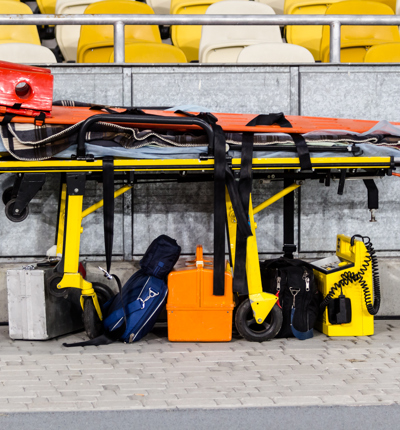
Parliamentary inquiry into link between sport and long-term brain injury
A Parliamentary inquiry into the link between sport and long-term brain injury will begin gathering evidence next week.
Posted on 03 March 2021
The investigation follows the 2019 FIELD study which found professional footballers were three and a half times more likely to die of neurodegenerative disease than other people of a similar age. Health records of 11 per cent of the former footballers who had died stated that they had died from dementia, compared to around three per cent for the socio-demographically matched sample.
As Leigh Day lawyer Emma Hall pointed out last year following the deaths of 1966 World cup winner Nobby Stiles and the dementia diagnosis of Sir Bobby Charlton, of the 22 players in the 1966 England World Cup squad, five have now been diagnosed with dementia – Sir Bobby Charlton’s brother, Jack Charlton died of the disease in July this year, and former players Martin Peters and Ray Wilson died in 2019 and 2018. Of those five players, Stiles, Peters and Wilson were all diagnosed with the disease whilst they were only in their 60s.
Legal actions across football and both rugby codes are being considered or have been launched, and Leigh Day is at the forefront of such claims investigations.
MPs on the Digital, Culture, Media and Sport (DCMS) committee will call witnesses to examine the issue, starting from next Tuesday, 9 March.
DCMS committee chair Julian Knight said: “This inquiry will consider scientific evidence to link sport with the incidence of long-term brain injury.
“We will look particularly at what role national governing bodies should be taking and their responsibilities to understand risks involved for players and what actions might be taken to mitigate them.
“We’re seeing a number of cases involving brain injury in sport likely to reach the doors of our law courts and we will also look at the implications for sport in the longer term of any successful legal claim.”
Abnormal brain changes, described as dementia disorders lead to a decline in cognitive abilities, which can be severe enough to impair a person’s function and ability to lead their normal daily lives. At present, no treatment can cure, slow, or stop the progression of the disease.
Following rising concerns about the risk of dementia caused by sports injuries, heading guidelines were changed last year in England, Northern Ireland and Scotland last year so that coaches did not practise heading at all when training young children.
A working group is also looking at the introduction of guidelines for the professional game and the Football Association and the Professional Footballers’ Association are funding further studies to examine the link between playing the game professionally and neurodegenerative disorders.
Press Association reported that The London School of Hygiene and Tropical Medicine is looking for more participants for its ongoing HEADING study. Any PFA members aged 50 or over would be eligible, he said.
After the DCMS committee hearing next week, a second session said will hear from individual players and governing bodies.
Michelle Victor, partner and leading consumer rights specialist at Leigh Day welcomed the Parliamentary inquiry into the link between sport and long-term brain injury.
She said:
“It is imperative that we have a greater understanding of the possible links between heading a football and dementia and take urgent preventative measures to stop any action that may be contributing to players possibly suffering from this devastating illness later on in life.”



